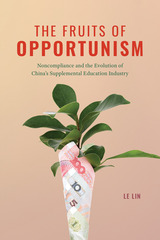
The engineering of plants has a long history on this continent. Fields, forests, orchards, and prairies are the result of repeated campaigns by amateurs, tradesmen, and scientists to introduce desirable plants, both American and foreign, while preventing growth of alien riff-raff. These horticulturists coaxed plants along in new environments and, through grafting and hybridizing, created new varieties. Over the last 250 years, their activities transformed the American landscape.
"Horticulture" may bring to mind white-glove garden clubs and genteel lectures about growing better roses. But Philip J. Pauly wants us to think of horticulturalists as pioneer "biotechnologists," hacking their plants to create a landscape that reflects their ambitions and ideals. Those standards have shaped the look of suburban neighborhoods, city parks, and the "native" produce available in our supermarkets.
In telling the histories of Concord grapes and Japanese cherry trees, the problem of the prairie and the war on the Medfly, Pauly hopes to provide a new understanding of not only how horticulture shaped the vegetation around us, but how it influenced our experiences of the native, the naturalized, and the alien--and how better to manage the landscapes around us.

An in-depth examination of the regulatory, entrepreneurial, and organizational factors contributing to the expansion and transformation of China’s supplemental education industry.
Like many parents in the United States, parents in China, increasingly concerned with their children’s academic performance, are turning to for-profit tutoring businesses to help their children get ahead in school. China’s supplemental education industry is now the world’s largest and most vibrant for-profit education market, and we can see its influence on the US higher education system: more than 70% of Chinese students studying in American universities have taken test preparation classes for overseas standardized tests. The Fruits of Opportunism offers a much-needed thorough investigation into this industry. This book examines how opportunistic organizations thrived in an ambiguous policy environment and how they catalyzed organizational and institutional changes in this industry.
A former insider in China’s Education Industry, sociologist Le Lin shows how and why this industry evolved to become a for-profit one dominated by private, formal, nationally operating, and globally financed corporations, despite restrictions the Chinese state placed on the industry. Looking closely at the opportunistic organizations that were founded by marginal entrepreneurs and quickly came to dominate the market, Lin finds that as their non-compliant practices spread across the industry, these opportunistic organizations pushed privatization and marketization from below. The case of China’s Education Industry laid out in The Fruits of Opportunism illustrates that while opportunism leaves destruction in its wake, it can also drive the formation and evolution of a market.


READERS
Browse our collection.
PUBLISHERS
See BiblioVault's publisher services.
STUDENT SERVICES
Files for college accessibility offices.
UChicago Accessibility Resources
home | accessibility | search | about | contact us
BiblioVault ® 2001 - 2024
The University of Chicago Press









